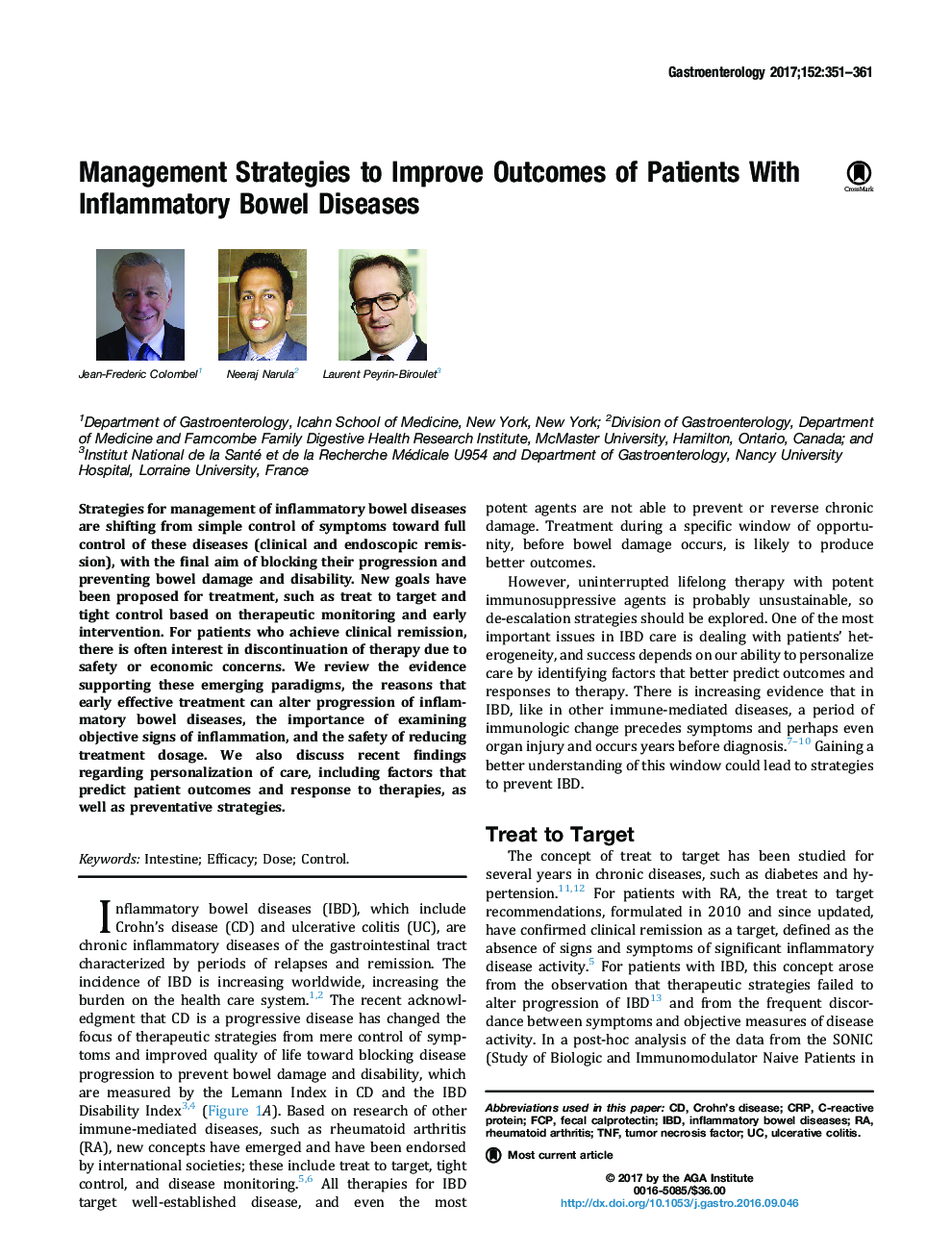| Article ID | Journal | Published Year | Pages | File Type |
|---|---|---|---|---|
| 5658305 | Gastroenterology | 2017 | 16 Pages |
Abstract
Strategies for management of inflammatory bowel diseases are shifting from simple control of symptoms toward full control of these diseases (clinical and endoscopic remission), with the final aim of blocking their progression and preventing bowel damage and disability. New goals have been proposed for treatment, such as treat to target and tight control based on therapeutic monitoring and early intervention. For patients who achieve clinical remission, there is often interest in discontinuation of therapy due to safety or economic concerns. We review the evidence supporting these emerging paradigms, the reasons that early effective treatment can alter progression of inflammatory bowel diseases, the importance of examining objective signs of inflammation, and the safety of reducing treatment dosage. We also discuss recent findings regarding personalization of care, including factors that predict patient outcomes and response to therapies, as well as preventative strategies.
Keywords
Related Topics
Health Sciences
Medicine and Dentistry
Gastroenterology
Authors
Jean-Frederic Colombel, Neeraj Narula, Laurent Peyrin-Biroulet,
